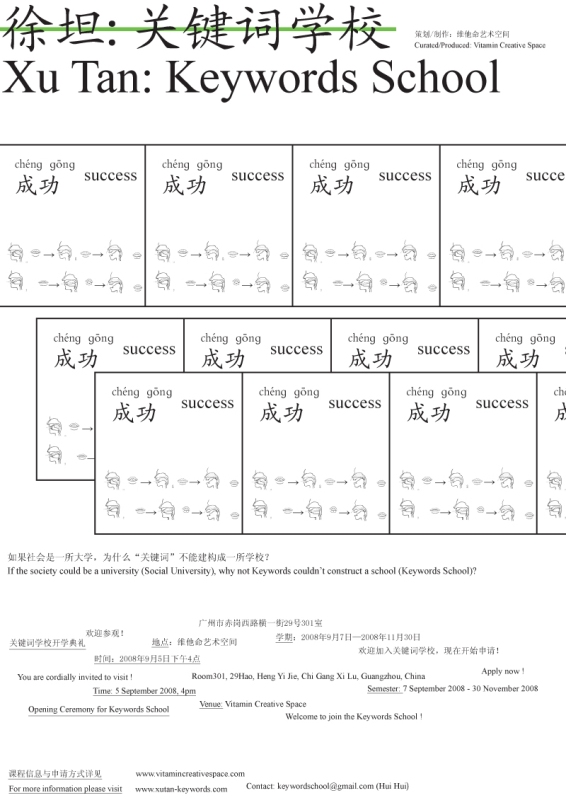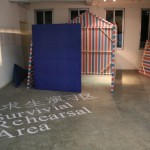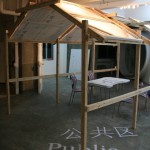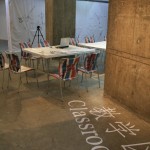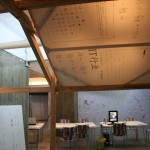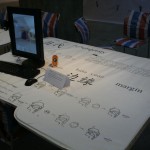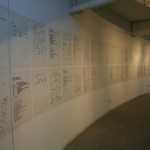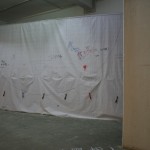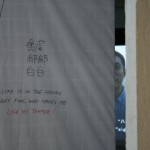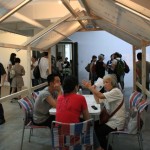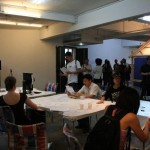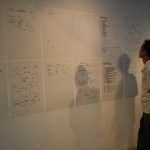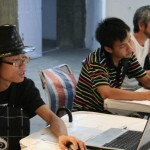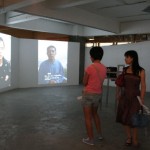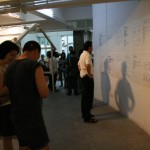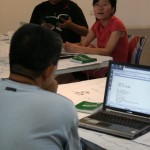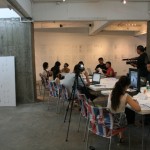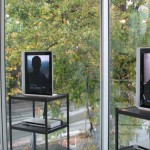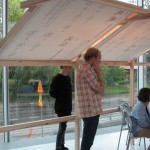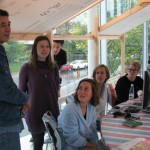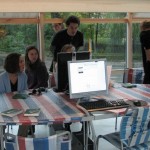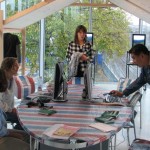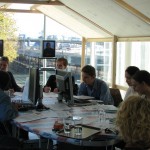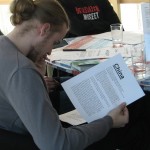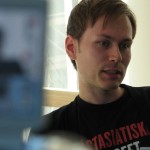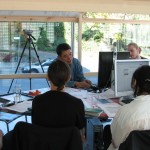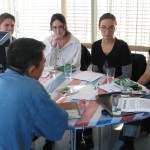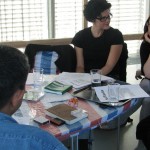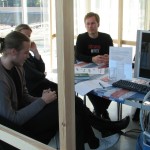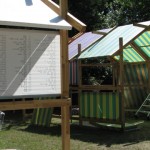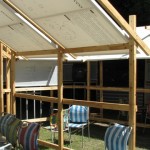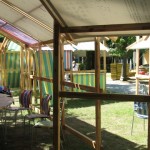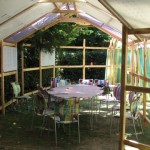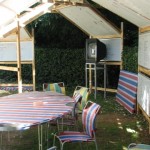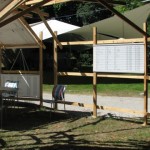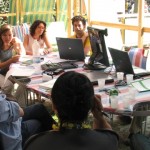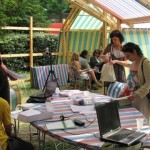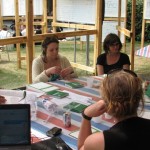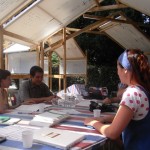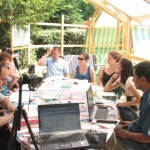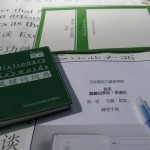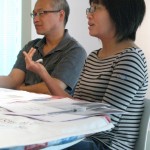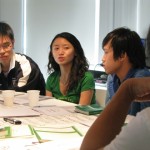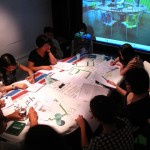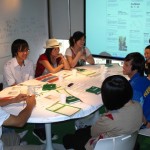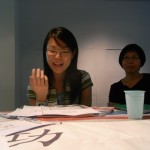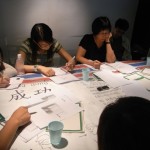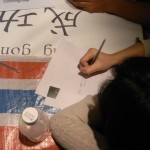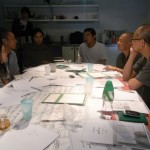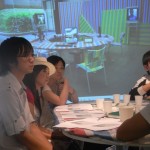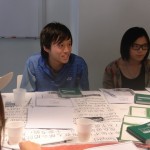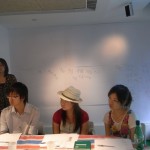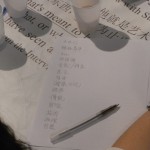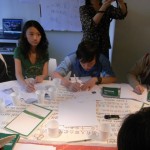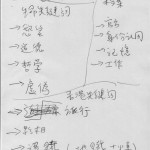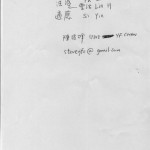100 Key Words in Chinese Context
MSN Dialog between Hu Fang (fun) and Xu Tan (xutanxt)
fun:
You told me last time that you would like to create a project concerning 100 Chinese key words that are indispensable in everyday life. I think we’d better start chatting from the project still being brewed in your mind.
xutanxt:
That’s a good idea.
fun:
Maybe it is just an assumption to look up one hundred words.
fun:
Suppose you could find the simplest and most essential vocabulary structure to help a person accomplish his or her basic existence in the society.
xutanxt:
The point is that this kind of vocabulary system is actually of vital importance.
xutanxt:
and we have to think about at what point and from which side does the vocabulary system intersect with the system of existence
fun:
Is it to say that in the face of so many problems we have to look for “100 basic words” again so as to search for an approach towards the point or the side of intersection.
xutanxt:
That’s why we should ask for the point.
fun:
For me, the imagination of the work “100 basic words” has become something like a guide for existence, which has further shown the present conditions for existence.
xutanxt:
And how living experience swims in vocabulary construction, and makes the words and expressions spread and change.
xutanxt:
How does the vocabulary system intersect with the system of feelings for existence? At what point do they intersect and interact with each other?
fun:
Whether the reexamination of the vocabulary system is just based on the trouble of the living experience system?
fun:
Does the reexamination of the vocabulary system relate to a person’s state on the verge of collapse? That is to say, even though you live in China, and speak Chinese, it is perhaps ridiculous when viewed from another angle. It is the collision in this vertical state that reveals the “man-made” characteristic of both the vocabulary system and the living system.
fun:
And the “man-made” characteristic is, in the final analysis, a structure supported by power.
xutanxt:
I think the vocabulary system itself is always logical, we can only find its gap when we examine the point where the vocabulary system intersects the living system.
fun:
The gap looks a little bit like a backstage.
xutanxt:
I use the word “gap” because language is often used to induce the opposing party, that is to say, we always use language to induce our audience. Even though you speak of something true, you are probably have a hidden intent. In this case, the logic of language is faced with a challenge.
fun:
Language is a kind of strategy, like the political structure in a society. Thus the account of a word or an expression is always so strategic that it is effective in reality.
xutanxt:
So at any time, if we choose 100 words to reinterpret, it is very difficult for us to know the specific meaning of each word.
xutanxt:
For example, why do we call those unemployed people “Xia Gang下岗”
fun:
From these words we can learn the background of a certain society, its living structure, as well as something that is covered up on purpose.
xutanxt:
In Chinese the word “Xia Gang(下岗)” originally refers to a soldier who finishes standing sentinel. Then what is the motive to create this word and make it spread widely in the whole society?
fun:
It is interesting that textual research can dig out the specific motives of the original words that have been developed, transformed and extended.
fun:
These are results of invention, and man-made structure.
xutanxt:
For example, “Shen Kui 肾亏”(renal weakness) could only be heard in hospitals of traditional Chinese medicine during the Cultural Revolution
fun:
But nowadays it is spread too wide.
xutanxt:
People use this expression very frequently because it describes an experience that actually exists.
fun:
Don’t you think it’s a pathological social phenomenon?
xutanxt:
It refers to a broadly related background from physiology and the psychology of the subconsciousness, because it is a hint.
fun:
Do you think then the people you interviewed are makers (leading people) of the vocabulary?
xutanxt:
Some are leading people, and some are special among them.
fun:
Can we say that artists are special among the leading people?
xutanxt:
Several years ago, we were frequently puzzled with the word “artist”.
xutanxt:
And now even more puzzled.
xutanxt:
When a person describes something he considers true, it is, I think, actually a make up.
xutanxt:
One great characteristic of Chinese society, I think, is the co-existence of both opening and closing concepts, which makes its language not only penetrating but also obscure.
xutanxt:
The stress on communication between we human beings, on the surface, is certainly a great thing, but behind it there exists different motives.
fun:
Social rules and potential rules are in parallel, and the potential rules are even more important. This is perhaps one of the reasons why I think Chinese society is complicated.
xutanxt:
With the observation of the whole environment of the speaker, it presents an especially different result.
xutanxt:
An artist is often covered by his own motive, and motive is actually different from standpoint. We can make an experiment in order to see whether an artist could transcend his motive, and reveal his standpoint. It seems to be a challenge to a creator, and has become more and more important today.
( The MSN dialog between Hu Fang and Xu Tan was made on 1st Oct 2005, while Xu Tan was starting to develop the core concept of “ Searching for Keywords” project.)
Translated by Hu Zhen
